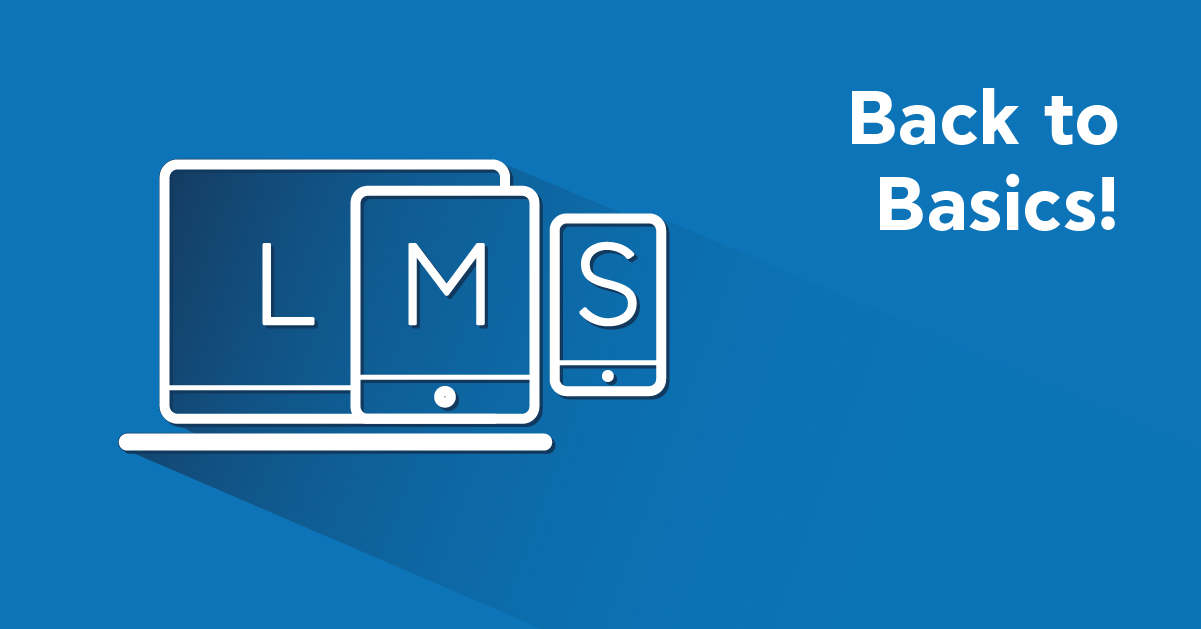If you’ve ever been in charge of launching an employee training program, you know it’s hard work. From figuring out skill gaps to creating a viable schedule that will cause the fewest disruptions (and eye rolls), on-site training can be a pure headache from start to finish.
Online corporate training is a more flexible way to train your workforce. Employees train using digital devices at a time and a place they find convenient. If you’ve looked into online training, then you are familiar with the term “Learning Management System.” But you might wonder, what is an LMS? What exactly does it do? And how will it benefit my employees? Do I need a Learning Management System to deliver training?
This post will shed light on the definition and benefits of an LMS. Most importantly, it will help you figure out whether an LMS is the right solution for your training needs.
So, what is an LMS?
A Learning Management System is a software program that allows you to create and manage eLearning courses. In a business setting, eLearning courses translate to corporate training, which ranges from onboarding to compliance and job-specific training.
What is the purpose of an LMS?
The purpose of an LMS is to keep your training content organized in one place. Practically, this means that you manage to stay on top of your training while employees have access to an online knowledge base.
An LMS also enables you to create and update your courses with greater ease, and monitor their impact on employees. What is more, it automates processes like course assignment or user management.
Why do I need an LMS?
The importance of a Learning Management System is prominent in cases when you need to deliver standardized or consistent training across multiple locations. Like a manufacturing company, for example, that needs to ensure compliance with specific regulations. Or a retail business with multiple branches.
You also need an LMS when you have decided to deploy online training, but don’t have the resources to build your own learning platform from scratch. Or, you simply don’t want to risk trial and error.
6 signs your company does need an LMS
The need for an LMS is usually synonymous with the need for online training. So if you’re asking, “Do I need a Learning Management System?”, you probably already have a gut feeling that your current training method as a whole doesn’t cut it.
Here are 6 signs that indicate you need to take your training online — and that an LMS is the best tool for the job.
1. Your training is all over the place
Here are some common scenarios of what training without an LMS looks like: videos and PowerPoint presentations sent out to staff with no plan to follow through or evaluate. Impromptu training seminars that often take place after an error has already occurred, like a cybersecurity breach or a compliance violation. Random online courses you thought employees will find interesting or useful and might join.
An LMS puts an end to this chaos by helping you structure and organize your content into courses. You can even create a library of microlearning resources so that employees can quickly revisit key training content as needed. For example, instead of sending your teams a long pdf with guidelines about how to protect their passwords, etc., you can give them access to a mini online cybersecurity course that explains technical issues in simple language.
2. Your employees aren’t using your training
If your training is characterized by erratic initiatives and lack of organization, employees won’t take it seriously. You’ve noticed that most don’t bother to join. Even when they do sign up for a course or attend a seminar, the feedback hasn’t been good. People aren’t engaged or don’t see tangible results afterward, e.g., an increase in their sales numbers.
With a feature-rich LMS, like TalentLMS, you can develop engaging courses that will captivate your learners. Training becomes more than reading boring documents and passively sitting through seminars.
An LMS gives you options to increase interactivity through branching scenarios and simulations, or social learning features, such as discussions and collaborative assignments. Live ILT sessions through video conferencing are also possible if you wish to take a blended learning approach. Not interesting enough? A tad of gamification with points and badges will motivate your more reluctant learners!
3. You need to track training
With no formal training procedure in place, you won’t know if people are taking the training in the first place. You don’t know which parts they don’t understand. You don’t know if it’s the right level of difficulty, or whether they enjoy the learning resources. Honestly, you are not quite sure if anyone remembers any of it.
Luckily, another advantage of using an LMS is the assessment and reporting tools available. To effectively gauge employee progress, include assessments that go beyond the traditional quizzes. Interactive videos, games, branching scenarios, and simulations not only test employee knowledge, but also provide instant feedback. (And they’re arguably more fun!)
As for reporting tools, those will give you thorough insights into attendance, engagement, and completion rates. That is to say, a clear view of what’s working and what’s not so that you can improve your training.
4. Your training costs are spiraling
Traditional training works for companies that consist only of a bunch of people, or that don’t need to train their workforce regularly. In any other scenario, it can quickly become unsustainable and put a strain on your finances. Not to mention that you can’t put a price on the hassle you go through to organize classroom training.
LMS training helps you cut down on training costs. In fact, any expenses related to accommodation, travel, and venue are eradicated. Instructor-related costs are also significantly reduced. For companies that are still growing or for those that training costs are prohibitive, an LMS eliminates the dilemma of choosing between employee development and financial well-being.
5. You need to train a remote or mobile workforce
If you’re in a sector that occupies mobile workers, like retail or healthcare, you know that on-site training is often more of an inconvenience than a perk. Even coming up with a schedule that works is a struggle, because mobile employees usually work in shifts.
The same is true for those who work remotely, who have to sacrifice a day’s (or more) work to attend training. Assuming, of course, that they are located within a reasonable distance from your offices.
There’s no reason to exclude mobile and remote employees from training because it’s inconvenient. With an LMS, your training courses are available to every employee and the learning material is the same for everyone. Just make sure to develop a mobile-friendly course for employees who will access the course from mobile devices.
6. You need to comply with industry standards
When your industry is governed by strict regulations and procedures, like healthcare or manufacturing, you need to ensure compliance and perfect training standardization.
By using a Learning Management System, such as TalentLMS, you can create your own compliance training courses or buy off-the-shelf content. You can also see who has completed which course and when, and have a succinct record at your fingertips. You can use that, in turn, as proof that your company is in accordance with all industry regulations.
The benefits of LMS training
Investing in online corporate training is imperative for training a modern, fast-paced workforce. The benefits of LMS training, in particular, are evident across all aspects of L&D.
From engaging and effective delivery methods (blended learning, microlearning, gamification) to advanced training assessment and tracking options, it’s easy to see that an LMS will make your training process easier. And, of course, it will do all that and more while at the same time cutting training cost and time significantly.
Next steps
By now, you should know whether or not you need an LMS. The thing is, which one is right for you? To help you choose the best platform, we’ve got an LMS checklist of the criteria you need to look for, as well as a list of the top LMS software companies of 2020. And if you need help implementing your new LMS, check our best practices for successful LMS implementation.
| Tags: Cloud LMS

